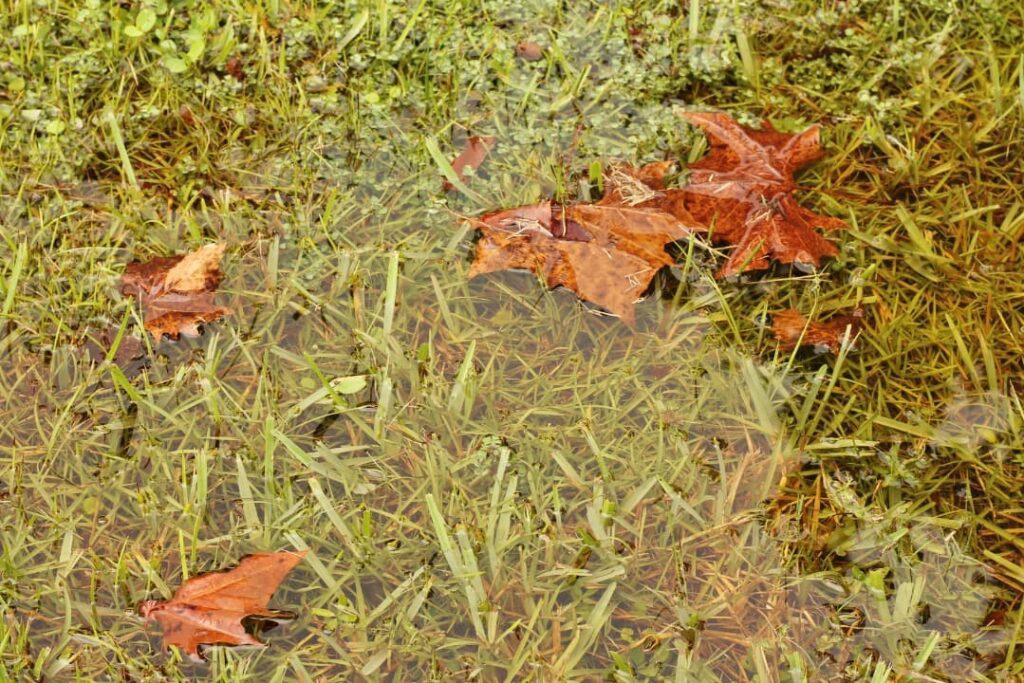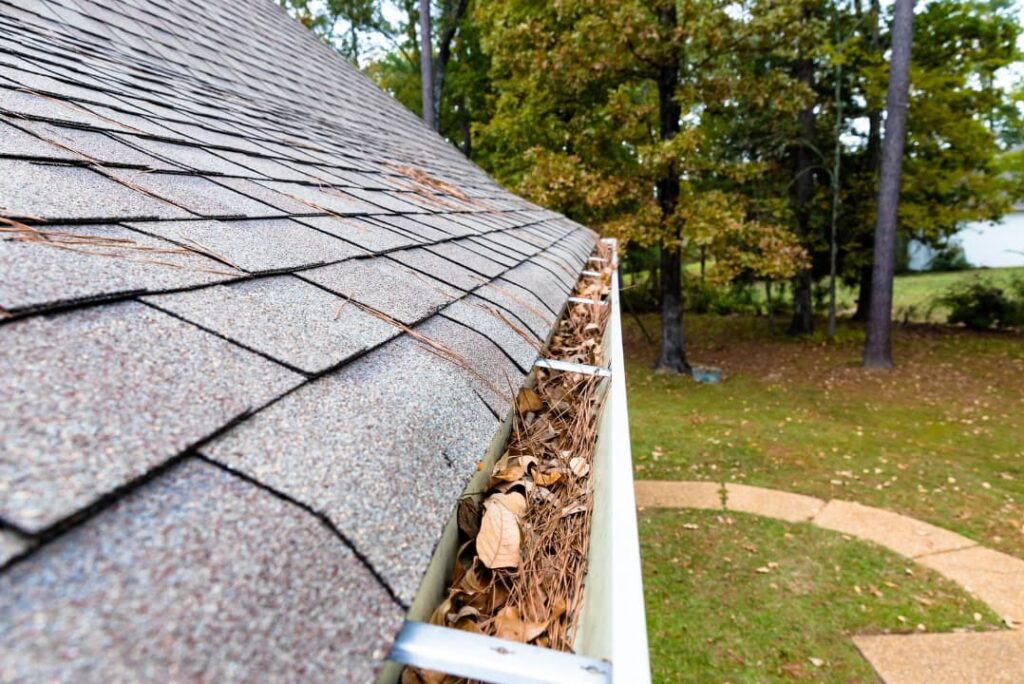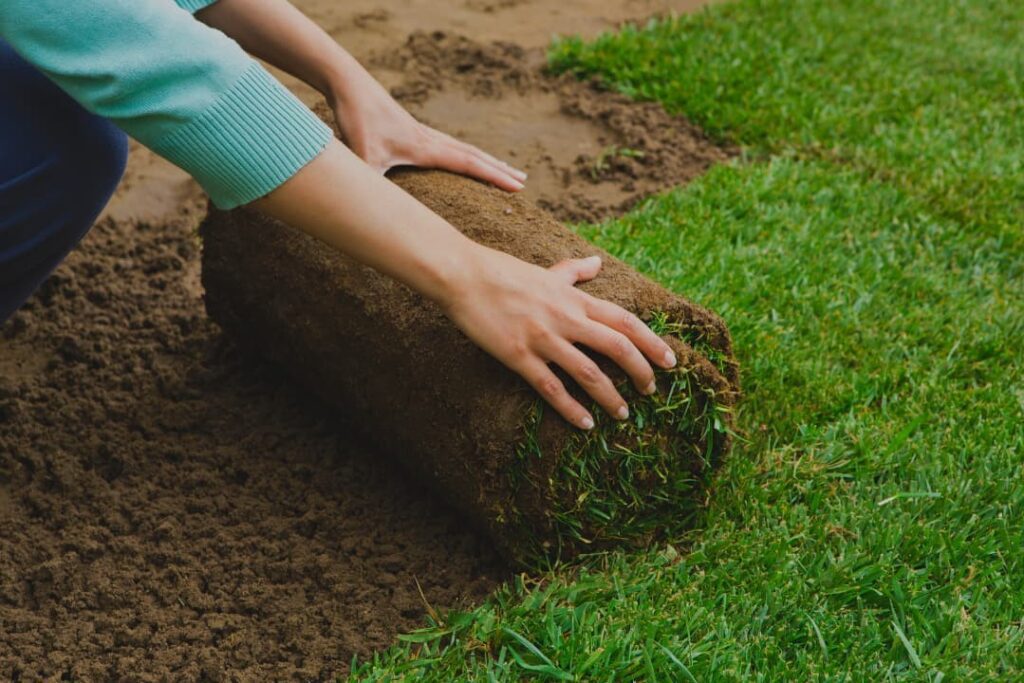- About
- Services
- Locations
- Resources
- Contact
Commercial property and homeowners in Naperville enjoy the benefits of our climate’s plentiful moisture each year. Heavy rain and snow can nourish the soil and make your yard plush and green. The moisture provides needed relief from humid heat and bone-biting cold temperatures and its aftermath can increase the value of your property.

But what happens when those same storms bring flooding to your yard? What causes some yards stressful flood damage while others remain pristine? As a property owner, where should you turn?
Naperville flooded yard repair professionals can erase the headaches and stress caused by the measurable standing water on your property.
A flooded yard can damage the value of your Naperville property and leave you with laborious repair struggles. However, before you can take the necessary steps toward repair or understand the issues a flooded yard can cause, you need to know why the flooding occurs.

Some of the reasons your yard might flood include:
Yard grading is the process of creating subtle inclines in your yard to allow for water distribution and runoff. Proper yard grading is intricate to excellent landscaping services. If your yard hasn’t been properly graded, rainwater could collect and create swamp-like pools on your property.
After a particularly heavy rain or snowstorm, water could seep into any foundational cracks you may have in your home. It could also create stagnant, swamp-like pools in your yard. The issue arises when excess moisture can’t evaporate.
Unfortunately, there isn’t much you can do about where your home or property is located. If your property is at the bottom of a hill, your yard is the last stop for water. However, proper yard grading and drainage solutions can still help alleviate flooding issues.
Major soil erosion issues can stem from drought-ridden or improperly fertilized yards. Every yard experiences some soil erosion, though, as layers of topsoil wear away over time. Foot traffic and weather can cause soil erosion, too. If your yard lacks a layer of healthy topsoil, the ground cannot absorb excess water.
Every property needs a yard drain. The most common yard drainage solutions run underground and are extremely durable. If you lack a yard drainage system or are in need of an upgrade, French Drains are a fantastic solution.
A flooded yard on your Naperville property can cause you major headaches and unnecessary stress. Costly repairs could abound if you don’t know what damages to look for after your yard floods.
Some of the most common damages caused by a flooded yard include:
If your flooded yard seeps into your home, it could cause black mold to form behind walls and in cracks. Black mold is not only unsightly, it can also cause major health issues.
If your outlets or any powered appliances are submerged as a result of your flooded yard, electrocution could occur. Don’t try to unplug appliances if they’re wet.
If your yard floods, chances are the excess water will impact the interior of your property too. If your basement floods, a multitude of repairs may be needed.
After a flood, you may find swampy pools of standing water on your property. These pools are a major attraction for different insects to breed and take over your yard.
Excess water runoff could send debris into your gutters and clog them, and fill your outdoor pipes with sediment. Your wastewater will have nowhere to go, and could fill your sinks and toilets.
Too much trapped water will cause root systems to rot, killing flowers, shrubs, and trees. A flooded yard could destroy your garden, too.
Flood water can seep through cracks and gaps in your property’s foundation and get trapped behind drywall. The drywall then rots and black mold seeps in. Soaked carpet can grow mildew, and you may incur expensive carpet replacement costs.
Wood floors are especially susceptible to flood damage. Wastewater overflow or standing water that seeps in from your yard can warp your floorboards. Warped floors often need to be ripped out and replaced to ensure any black mold or mildew issues are eradicated.

If your commercial or residential property has incurred damage due to flooding, you may need professional help to repair issues and to guarantee temporary problems don’t become permanent messes.
You may be able to replace damaged fences or floorboards on your own, but saving money in the present may cause huge out-of-pocket expenses in the future.
Some of the ways a professional landscaping team can help repair flood damage and utilize preventative measures against future flooding issues include:
A great landscaper can add subtle inclines to your yard to allow water runoff to flow away from your property. This may help prevent structural damage to your property’s foundation after excessive precipitation.
Ineffective yard drains can become impacted with sediment and debris and cause major flooding problems. A durable, effective yard drain is vital to prevent and minimize flood damage in your yard.
Professional landscapers can help you select a yard drainage system to meet your property’s specific needs. The right team will install a long-lasting, low maintenance drainage solution to erase flooding issues.
Restoring soil health and replacing sod can help you replace healthy topsoil washed away by flooding. Laying down organic, nourishing sod can make a huge difference in the way your yard handles excessive water.
By draining your gutters and sump pump into the nearest sewer system, excess water runoff is prevented from seeping into your foundation.
By replanting your floral and fauna in new, healthy topsoil, you can ensure your plants’ root systems will thrive and prevent soil erosion.
If your yard suddenly floods, first ensure your safety by avoiding contact with the flooded area and any standing water, which may be contaminated. Next, try to determine the source of the flooding, such as heavy rainfall, a burst pipe, or groundwater seepage. If the flooding poses a risk to your property or safety, contact emergency services for assistance.
Once it’s safe to do so, you can contact us for professional assistance in assessing the situation and implementing appropriate drainage solutions to prevent future flooding.
The best drainage solutions for a frequently flooded yard depend on factors such as the cause of the flooding, soil type, slope of the land, and landscaping features. Common solutions may include installing French drains, surface drains, swales, rain gardens, or grading and resloping the landscape to redirect water flow away from problem areas.
Generally, we will come and assess your yard and recommend the most effective drainage solution tailored to your specific needs and conditions.
Installing a drainage system can often solve yard flooding problems by effectively managing surface water runoff and preventing water from pooling or saturating the soil. Depending on the severity and cause of the flooding, a drainage system may include components such as French drains, surface drains, catch basins, and downspout extensions.
In addition to installing a drainage system, there are several long-term measures you can take to manage yard flooding. These may include regularly maintaining your drainage system by cleaning drains and removing debris, incorporating permeable surfaces such as gravel or permeable pavers to allow water to infiltrate the soil, planting native vegetation with deep root systems to absorb excess water, and managing stormwater runoff with rain barrels or retention ponds.
Yes, there are environmentally friendly ways to manage yard flooding that minimize impact on the environment while effectively managing water runoff. These may include incorporating green infrastructure such as rain gardens, bioswales, and vegetated swales to capture and absorb stormwater, using permeable surfaces to allow water to infiltrate the soil, and planting native vegetation with deep root systems to enhance soil permeability and water absorption.
At Ware Landscaping, we understand how the damage caused by a flooded yard in Naperville can make you feel stressed, overwhelmed, and defeated. Your yard should be your outdoor sanctuary, and you should be able to take pride in your property.
You need to be able to turn to trusted professionals who are also part of your community. Since 2000, Mike Ware and his team have been taking care of flooded yard repair and other vital landscaping services for property owners in Naperville and the greater Chicago area.
Whether you need to install a new yard drainage system, replace your top soil, or add landscaping features to help prevent flooding, we’ve got you covered. Our comprehensive landscaping services allow us to find a customized solution to fit your needs. We also offer snow removal service packages to help keep your home’s foundation dry in the winter.
You shouldn’t have to drown in the financial and repair concerns of a flooded yard on your own. Let Ware Landscaping come to your rescue. Contact us today.